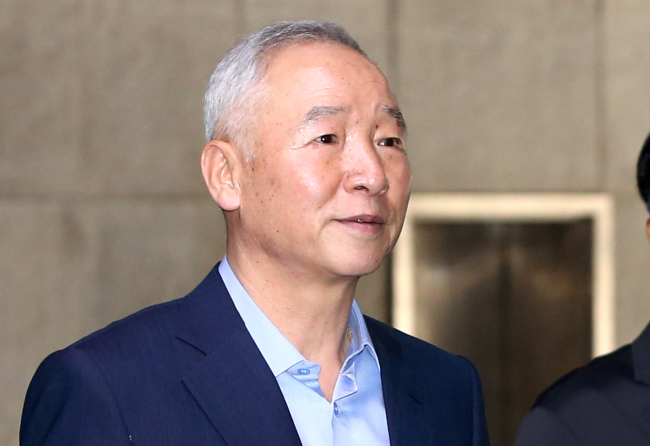National Intelligence Service chief Nam Jae-joon did not waste a moment when he authorized the disclosure on Monday of the controversial transcript of the 2007 inter-Korean summit.
The spy chief’s decision came just days into a tug-of-war between the rival parties over a parliamentary investigation into the agency’s involvement in last year’s presidential election, and a full disclosure of the transcript containing former President Roh Moo-hyun’s remarks on the Northern Limit Line, the de facto sea border in the West Sea.
The spy chief’s decision came just days into a tug-of-war between the rival parties over a parliamentary investigation into the agency’s involvement in last year’s presidential election, and a full disclosure of the transcript containing former President Roh Moo-hyun’s remarks on the Northern Limit Line, the de facto sea border in the West Sea.

Suddenly without its bargaining chip, the main opposition Democratic Party vilified Nam’s move as a tactic thought up with Cheong Wa Dae. They cited how the disclosure came just hours after President Park Geun-hye commented that all the problems concerning the NIS should be clarified.
Rep. Moon Jae-in, the DP’s candidate in the presidential election, said that if the NIS’ move was carried out without any order or permission from Cheong Wa Dae, it would deserve its chief’s dismissal as the agency is directly under the president.
The ruling Saenuri Party, on the other hand, was seen making a hero out of Nam, explaining that the former Army chief of staff ― who has been Park’s security adviser with a shared dedication to principles ― made the decision with the resolve to resign if necessary to put an end to dispute over the country’s sovereignty in the West Sea.
Nam, while attending the National Assembly’s Intelligence Committee on Tuesday, reportedly said he had no reason to resign and that he made the decision for the sake of protecting his agency’s honor against repeated offensives from the opposition party.
The Saenuri Party lawmakers supported Nam, saying that he has always vowed to remain politically neutral.
But so far, that explanation has paled against the political fury over the transcript disclosure.
The DP’s ill-choreographed counterattack is also seen as less than likely to end the ideological warfare at the expense of the nation’s information security and forward-looking inter-Korean relations.
By Lee Joo-hee (jhl@heraldcorp.com)
-
Articles by Korea Herald



















![[Today’s K-pop] Treasure to publish magazine for debut anniversary](http://res.heraldm.com/phpwas/restmb_idxmake.php?idx=642&simg=/content/image/2024/07/26/20240726050551_0.jpg&u=)